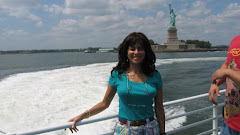posted November 22, 2011
Today (11-23-11), our ship stopped in Katakolon, a small port located in southern Greece known for its proximity to the ancient site of Olympia—yes, THE Olympia where the ancient Olympics began in 776BC and lasted more than 1200 years. The games began as a tribute to Zeus and to celebrate character and balance of body and soul, as well as beauty and nobility.
At a time when incessant wars between city states were causing massive destruction and death, the King of Greece decided to call a truce and allow its best soldier athletes to fight on an athletic battlefield. Initially, the contests were divided into those in the nude and horseracing. The first nude races were footraces and gradually grew to include a pentathlon of sports of military skill in 706BC: javelin, discus thrower, jumping, wrestling, and foot racing. Later, boxing and chariot races were added.
 |
| On your mark, get set, go..........! |
Winners, who wore a wreath from the sacred olive tree, were transformed into virtual gods when they returned home, heralded as heroes for a lifetime. Strict rules governed participants requiring them to be Greek citizens, devoid of accusation of murder, and violation of game rules. In addition, judges, athletes’ trainers, and spectators followed a rigid set of requirements.
Women, who had their own competition before or after the games, were not allowed to be spectators.
We visited both the archeological site and the museum that houses artifacts excavated from the site.
The Archeological Site
Here we saw the gymnasiums, temples were prayers and sacrifices were offered, Olympic village, the race track, and more. We even took photos from the original footrace starting blocks.
Today, Olympic flame of the modern-day Olympic Games is lit by a reflection of the sunlight in a parabolic mirror at the restored stadium and then transported by torch to the place where the games are held. The first such torch was carried to Berlin in 1936. In 2012, the flame will be carried from this very spot to London.
The ancient Olympics ended 393AD when the Christian Emperor banned all form of pagan worship including these international games. Later, earthquakes, northern invaders, and flood damaged and eventually covered the site under 12 ft of silt. It is a wonder the site was excavated and rediscovered by a monomaniacal German archeological team beginning in 1875.
The modern Olympics were revived and were held for the 1st time in centuries in Athens in 1896 with 44 contests and 13 countries. Subsequent Olympics were held in Paris, St Louis, London, Stockholm, Antwerp, Amsterdam, LA, Helsinki, Melbourne, Rome, Tokyo, Mexico City, and so on.
The games were only stopped during WWI and WWII.
After we toured the site, we toured the impressive (nearby) archeological museum that houses hundreds of spectacular artifacts including statues, helmets, coins, terra cotta objects, and gold items.
Our visit ended with a stroll among the harbor front cafes and shops. Efharisto, parakalo, kalimera. I still remember a bit of Greek!
We had perfect sunny, cool weather for our tour with a knowledgeable, passionate, humorous guide.
I will certainly have special thoughts about the Olympics from now on………….
.JPG) |
| Olympia Archeological Museum |
 |
| Queen Victoria in Katakalon, Greece |
update Feb 2, 2012:
Ancient Greek Museum Attacked And Looted By Armed Robbers
Huffington Post UK First Posted: 17/02/2012 09:18 Updated: 17/02/2012 10:29
Robbers in Greece have stolen dozens of artefacts of "incalculable value" from a museum in Ancient Olympia.
Local officials said the Archaeological Museum of Olympia was attacked by armed robbers.
The museum, which is known as the birthplace of the Olympic games, was hit in a planned attack on Friday at around 7.30 am.
The thieves broke in using hammers, according to local media reports.
They tied up and gagged the one female guard present on site and stole up to 60 and 70 artefacts, according to police.
Local mayor Thymios Kotzias suggested two men in masks overpowered the one guard on duty, according to the BBC.
Culture minister Pavlos Geroulanos has apparently offered to resign over the incident, said Skai TV.
British officials are due at the museum on May 10 to light the Olympic torch ahead of this year's summer games in London.







.JPG)
.JPG)

.JPG)



 Solo Synchronized
Swimming
Solo Synchronized
Swimming





.jpg)
.jpg)



